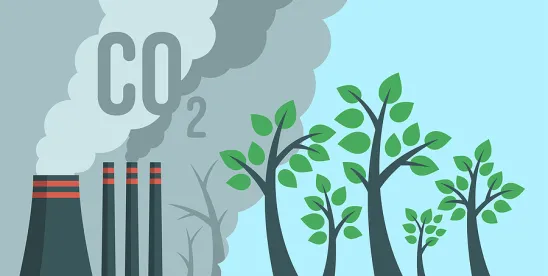On May 22, 2025, the New York Court of Appeals--the highest court in New York State--unanimously upheld New York City's Local Law 97 against a challenge brought by certain property owners. This law--Local Law 97--is “aimed at reducing greenhouse gas emissions and transitioning to clean energy in order to combat climate change,” and does so by imposing strict restrictions on greenhouse gas emissions for large buildings (25,000 square feet or larger), and assessing penalties for non-compliance. While the trial court had dismissed the lawsuit challenging the law, the intermediate appellate court had reinstated the challenge solely on the grounds of “field preemption,” a legal position which has now been decisively rejected by the courts of the State of New York.
According to the legal doctrine of field preemption, local laws are preempted when a state has indicated its “intent to occupy a particular field”; here, the challengers argued that a certain New York State climate law meant that “the State [of New York] has preempted the field of regulating greenhouse gas emissions.” In rejecting that contention, the Court of Appeals held “that the legislature has neither expressed nor implied any intent to preempt the field of regulating greenhouse gas emissions,” and, indeed, there was no “inten[t] to prevent localities from taking measures that would help the State [of New York] achieve its overall emissions goals.”
While the legal ruling here is closely tied to the specific language at issue in the varying state and local laws, the overall decision is highly significant--not only does New York City's Local Law 97 survive (an aggressive effort to counter climate change), but the New York Court of Appeals has effectively blessed similar efforts by other localities in New York State in the future. And this decision could encourage similar efforts in other states, providing further impetus to laws seeking to mitigate the effects of climate change.
New York City isn’t preempted by state law from regulating greenhouse gas emissions from large buildings, the state’s highest court said Thursday. The state’s climate law “recognizes that local government plays an important role in this area” and doesn’t “expressly prohibit local regulation of emissions,” Court of Appeals Associate Judge Anthony Cannataro wrote for the unanimous court. The ruling reverses an appellate court order reinstating and remanding to the trial court the preemption claims brought by the board presidents of two co-ops in Queens and the owner of a mixed-use building in Manhattan. The plaintiffs argued the legislature intended for the state’s Climate Leadership and Community Protection Act—which aims to reduce greenhouse gas emissions across the state by 40%—to preempt New York City law that sets limits on building emissions and imposes penalties for exceeding those limits.




 />i
/>i
